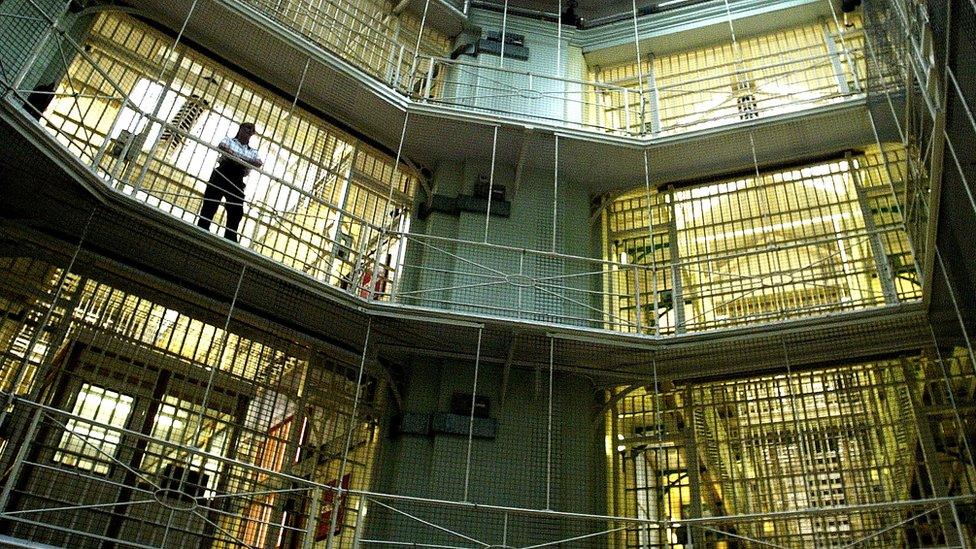The women who want to work in a male prison
- Published
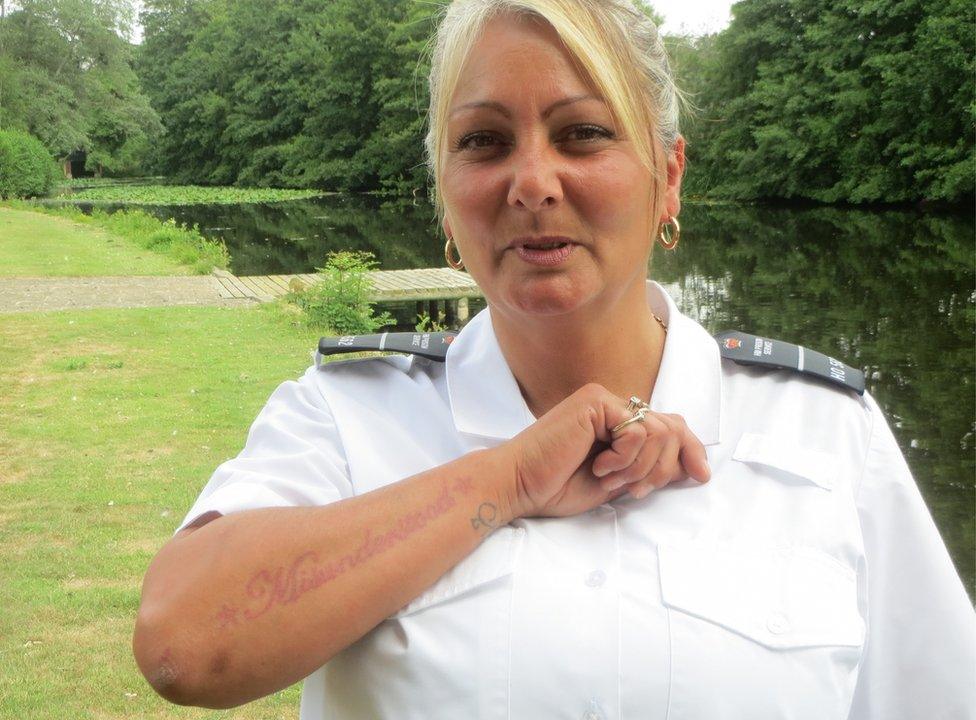
Charmaine says the tattoo she had in memory of her friend is providing motivation for her new career
The prison service in England and Wales is in crisis, amid reports of widespread problems with drugs and violence in numerous jails. Three women explain why they want a job working behind bars in a men-only prison.
The word "misunderstood" is tattooed in pink along Charmaine's arm.
It's in memory of her friend who was murdered. Her friend had the same tattoo done before she was killed.
"I can't really say what it means," admits Charmaine. "Some people think it's from a song, but I think it's more to do with how my friend saw herself as a person."
She describes her as being like a sister.
"We did everything together. She was my world."
'Make a difference'
The tattoo is now motivating Charmaine in her new career. She's just become a prison officer.
"If my friend knew I would eventually become a prison officer, she would have told me I was mad and needed my head testing."
But it was something Charmaine's mother said that stayed with her.
"After my friend's death it took me some time to really think straight but my mother told me once that everyone deserves a second chance.
"I couldn't think about anything else except how much I hated my friend's attacker, but after a year or so I started to think about what my mother said. I decided I would try and make a difference and become a prison officer."

Read more about the prison crisis

We have agreed not to use Charmaine's surname - or the surnames of the other women featured in this piece - for security reasons.
I met Charmaine when she was in training at Newbold Revel, an 18th Century, Grade II listed country house in Warwickshire.
She's 50 years old and a mother and grandmother and used to be a painter and decorator on building sites, where she was the only woman.
Charmaine decided she wanted to try something new after having one too many accidents while painting, so recently she's been working in a prison to get the feel of it, before committing to it completely.
She says she's ready for the challenge and feels confident that she can cope with violence or incidents of self-harm, partly because she's already had some personal experience of it.
"My brother and nephew took their own lives. It's not something I'm scared of. I know I can deal with it and be sympathetic and compassionate to the family, but it's hard."
Motherly instincts
She says her life experience will definitely play a part in her new role.
"You're seeing youngsters come into the prison for the first time and it's nerve-wracking for them. You need someone with motherly instincts who can pick up if someone's upset."
Charmaine has been a victim of crime. She was also in an abusive relationship and ended up at a refuge.
Even so, she prefers to think about prison as a place of rehabilitation rather than punishment.

Calypso had been working in a bar before training as a prison officer
"Prison teaches them not to go back out and reoffend. We try and teach them that what they've done is not a good thing, and then help them go back into society and be a better person."
Training alongside Charmaine is Sally, 49, and Calypso, 24.
Sally had a career in banking and then local government, while Calypso has been doing bar work as well as an Open University forensic psychology degree.
As trainees, they all spend 10 weeks at Newbold Revel, although the full training is 12 weeks long.
It's a mixture of classroom theory and practical exercises using role play. Recruits learn cuffing, cell-searching, locking and unlocking doors, as well as how to deal with confrontation and communicate well.
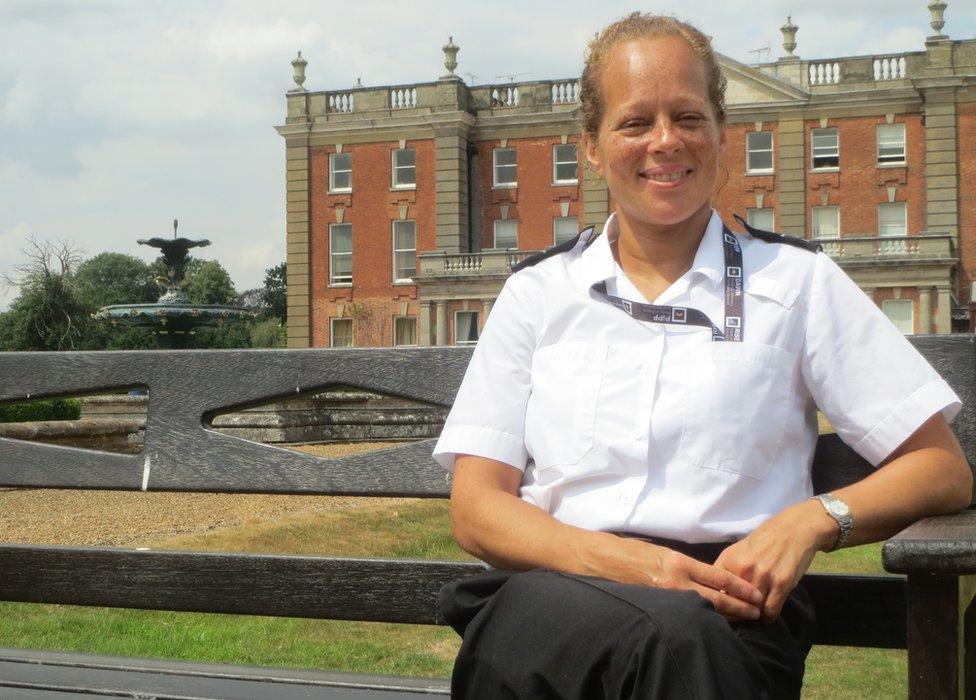
Sally says she is ready to confront challenges she faces behind bars
Charmaine, Sally and Calypso start their new careers at a point when prisons are feeling the strain.
There's evidence of an increase in sexual violence between inmates and there have been stark warnings about rising violence and drug use behind bars.
Because of the number of people leaving the service, the government aims to train 5,200 new prison officers this year and says it is on track to meet the target.
The trio are also joining a male-dominated industry.
According to the latest figures,, external there are about 21,600 prison officers in England and Wales. Just over a quarter of those are women.
'It excites me'
Despite the challenges, all three women say they're positive about their next step, insisting they're not naïve.
"I really believe in what I'm doing," Sally says.
"For me, there are no rose-tinted glasses. I'm excited because I know there's a rehabilitation culture in prison. That's what brings change and that excites me. Yes, there'll be challenges, but those challenges are opportunities."
"It is risky," admits Calypso, "but that doesn't put me off because a lot of it is to do with your interpersonal skills.
"It's not about how big and tough you are. If I can help just one person, I've done my job in life."
Listen back to the interviews on BBC Radio 4's Woman's Hour.
- Published25 August 2018
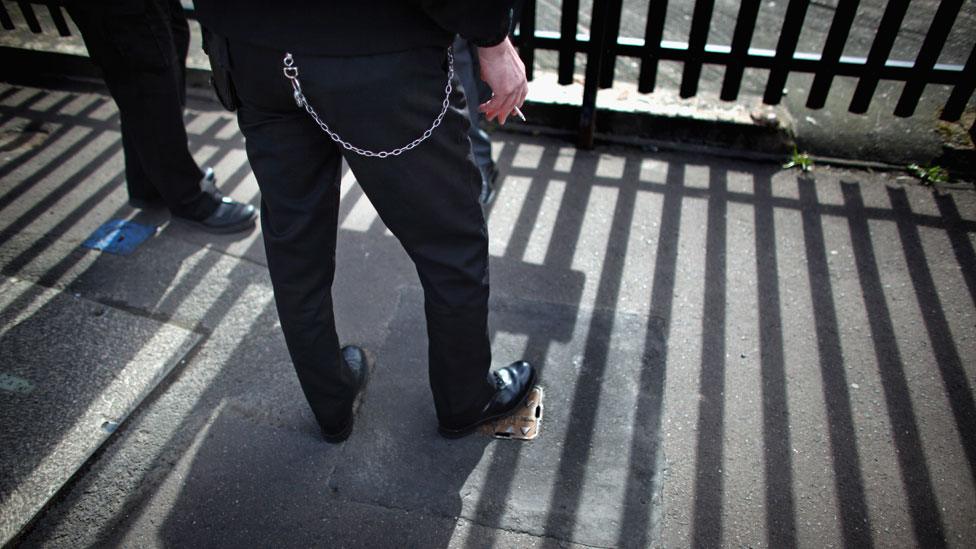
- Published22 August 2018
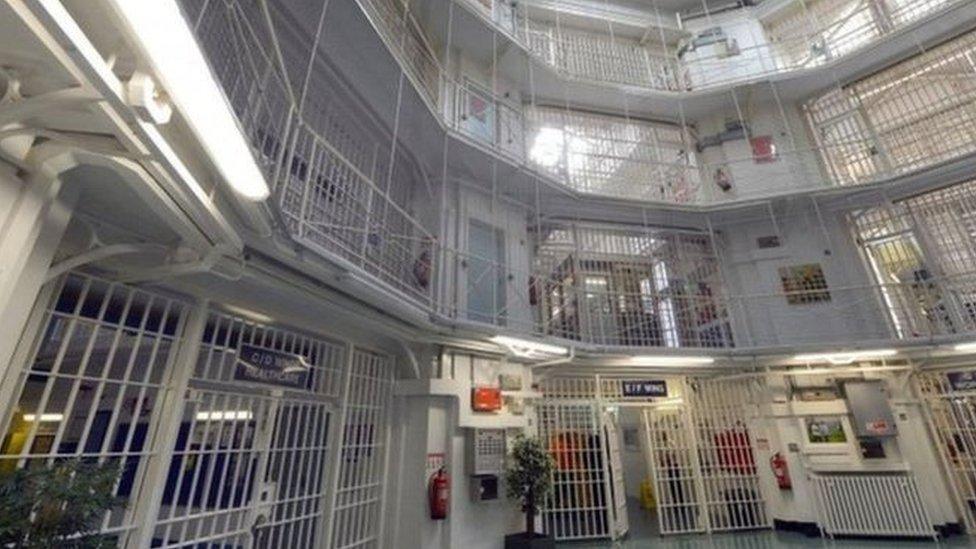
- Published16 October 2018
